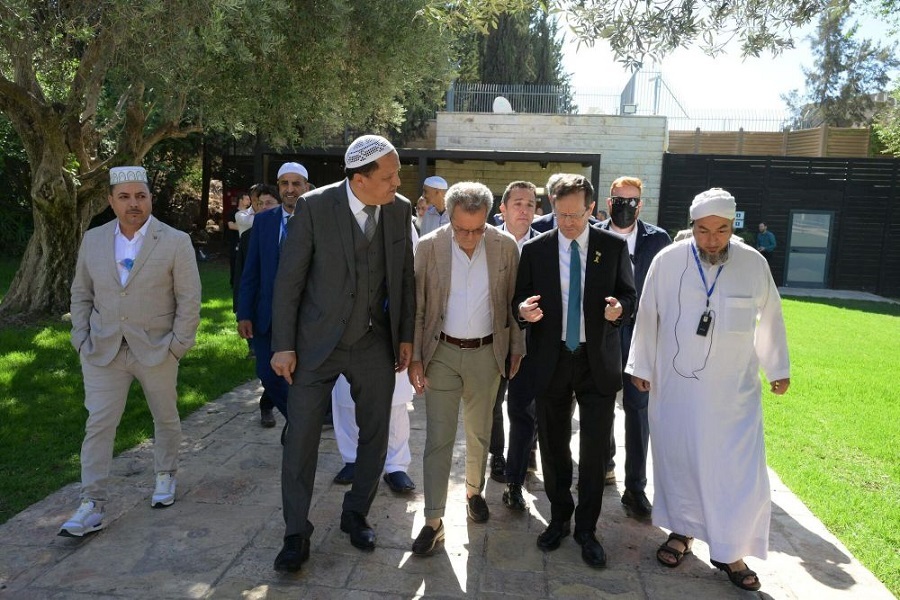Lecturer Slams European Imams’ Israel Visit as Theological Cover for Silence on Gaza Genocide

In a sharply critical op-ed published on Wednesday at The New Arab, Shadee Elmasry argued that the delegation’s trip to occupied territories is not just politically irresponsible but religiously misleading. “To understand their motives,” he wrote, “we must examine three theological 'traps' these figures use to justify their support for Israel, or at the very least, their silence over Palestine.”
The group of imams—from France, the UK, and Italy—visited Israel earlier this month as guests of ELNET, a European organization that promotes ties with the Israeli regime. Their stated aim was to promote “peace” and “interfaith dialogue.” However, the timing of the visit—amid Israel’s continuing genocidal war on Gaza, which has killed more than 59,200 Palestinians since October 2023—has provoked widespread outrage.
Elmasry dismantled what he called the “Greater Good Trap,” where scholars claim that speaking against Israel could result in institutional or personal harm. “A weak-willed person will always accept this reasoning,” he wrote. “They gain spiritual cover for remaining silent… Israel, I’m sure, is delighted by this self-censorship.”
The visit, which included a meeting with Israeli head Isaac Herzog and a stop at the Al-Aqsa Mosque compound in occupied East al-Quds, came under immediate fire from religious authorities. Al-Azhar University denounced the imams’ actions as a betrayal of both “Islamic and humanitarian values,” accusing them of ignoring “massacres” and the “continuous killing of innocent people.”
Read More:
Elmasry’s second theological critique targeted what he called the “Pure Theology Trap,” where scholars prioritize ideological purity over real-world suffering. “It is foolish to denounce one error while ignoring a greater one,” he wrote. “To attack a people’s doctrinal shortcomings while staying silent on their oppression is not principled; it is a failure to understand the fiqh of priorities.”
The imams' visit also drew condemnation from the European Council of Imams, which said the delegation was unaffiliated with any credible Islamic body and accused them of serving “suspicious agendas.” The council called the visit “provocative” and condemned the meeting with “criminal figures.”
Elmasry’s final warning was against what he termed a “metaphysical trap,” where the suffering of Palestinians is interpreted solely as divine punishment. “The catch here is that the spiritual angle often becomes a cover for pacifism,” he wrote. “They showed no emotion, no voice, when witnessing the oppression of their own; only when it came to their sponsors did they find something to say.”
Read More:
According to Elmasry, such theological misdirection plays directly into the hands of the oppressor. “Any diversion, theological or otherwise, is welcome,” he said. “The oppressor laughs at those who fixate on what is bad while ignoring what is worse.”
Elmasry ended his piece on a note of hope, affirming that Muslim solidarity with Palestine remains alive. “The drive within the hearts and minds of Muslims to carry the burden of the Palestinian people… has not been extinguished. It is sustained by faith, shared memory, and the belief that justice is not a slogan but a sacred duty.”
Source: Agencies



